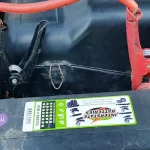Pushing the gas pedal causes the vehicle to accelerate according to the amount of pressure applied. However, there are a variety of problems that can cause your car to hesitate or accelerate very slowly.
Whenever your car stalls at 40 mph, it could be due to a malfunctioning or dirty mass air flow sensor.
In your engine, this unit controls air intake and ensures that the right mix of air and fuel is injected. There will be intermittent delays or a lack of acceleration if this is dirty or not working properly.
There may also be a problem with the transmission. In order for a car to function properly, its transmission must be in good working order.
By controlling the engine’s RPMs while accelerating, transmissions prevent the engine from overexerting itself.
Transmissions play a crucial role in keeping engines running at optimal performance, and when a transmission fails, the effects are immediate.

Car Stalling At 40 Mph: Symptoms
Several symptoms may indicate that your transmission is going bad if you are driving at 40 mph.
Having Difficulty Accelerating
A transmission that cannot accelerate any further than 40 mph indicates that the vehicle needs to be serviced or replaced if it moves at that speed but cannot accelerate any further.
Transmission problems can develop at any speed, depending on the gear in which the transmission is malfunctioning.
As the car accelerates above that speed, the engine will continue to rev, but the car won’t be able to shift into the next gear.
It is possible to damage your engine if you keep trying to accelerate. At lower speeds, the car probably would still run fine, but you should get it checked out by a mechanic as soon as possible.
You might wonder – car also stall once you put it in gear
A Decrease In Speed
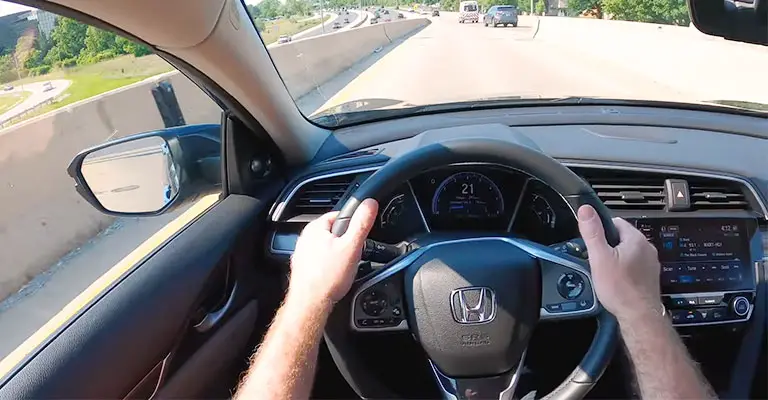
It is sometimes possible for the transmission to prevent the car from maintaining a proper speed.
For example, a car traveling 40 mph suddenly slows down while the engine continues to rev, which suggests a transmission problem, especially if pushing the accelerator has no effect.
Depending on the problem’s length, the transmission can work again after a few seconds. Once the transmission wears out, it’s likely to happen again, and the car should be serviced before further damage is done.
Kicking When Shifting Gears
Changing gears with a bad transmission is often accompanied by violent kickbacks. As a result, RPMs in the engine will increase as the car approaches 40 mph.
Usually, engine noise will quiet down when the transmission shifts and the engine’s RPMs decrease.
There is a possibility that a bad transmission will make the car jerk, as well as make a loud “slamming” noise at that moment. However, as the transmission corrodes, this usually occurs at the same speed and with consistency.
Symptoms Associated With Loss Of Power
It is not just annoying when your car runs rough at stop lights, but it is evidence that it needs further maintenance.
It isn’t enough to simply know there is a problem to solve it. Many different issues can cause power loss, so narrowing down the problem to a specific system is essential.
Airflow Sensor:
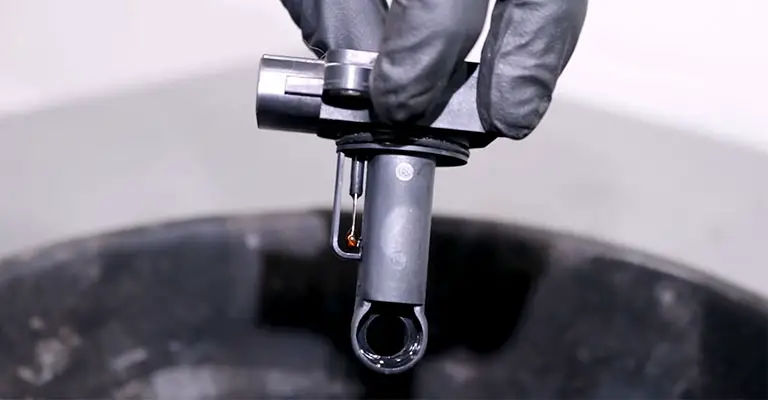
A failing or dirty airflow sensor can cause your engine’s computer to send the wrong signals, resulting in power loss while accelerating.
Even when the vehicle is powered, this type of issue usually causes the Check Engine” light to illuminate and the vehicle to behave sluggishly.
Catalytic Converter:
Catalytic converter failures or clogging can cause power losses when they prevent proper airflow through the engine. Besides losing power, you might also experience an erratic idle or a higher temperature than usual.
To determine if your catalytic converter is working properly, a mechanic can use a vacuum gauge.
Timing Belt Or Chain:
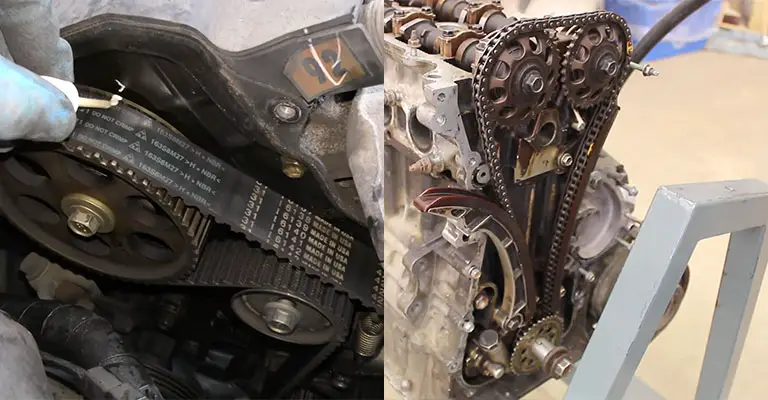
It can be difficult to power your engine if your timing belt or chain is worn out, resulting in valves opening and closing at the wrong intervals.
In most cases, a slight clattering noise from the front of the engine occurs when the timing is off.
Ignition System:
You may also experience periodic power loss and problems starting your vehicle when your ignition system is malfunctioning.
A tune-up may fix this problem, but it’s important to have a qualified mechanic inspect the whole system with the appropriate diagnostic tools.
With modern tune-ups, fewer parts need to be replaced, but the fuel injection system should be more carefully examined as well.
You may like to know – car stall when you start it
Leak In The Vacuum System:
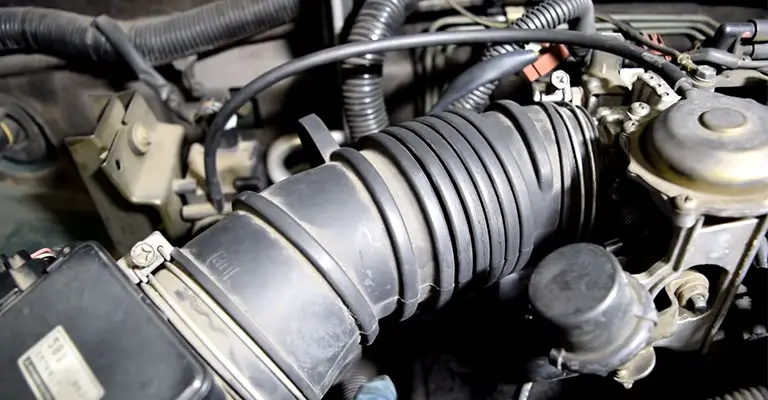
An air-to-fuel ratio leak in your vehicle can interfere with the computer’s ability to regulate its air-to-fuel ratio, resulting in a loss of power.
A leak of this kind will frequently cause the Check Engine” light to go on, and if you listen carefully under your car’s hood you can usually hear a hissing sound coming from the engine area.
A Defective Fuel Pump Or Fuel Filter:
Fuel pumps are responsible for delivering fuel to your vehicle, so they can wear out or become clogged when they wear out or when they become clogged and prevent fuel from flowing freely.
Your car may sometimes make sputtering noises at high speeds if the fuel pump is failing or unable to push fuel through the filter, act like it is going to stall when you accelerate from a stop, or simply stop running when you are pushing it up a hill.
What Do I Do If My Car Suddenly Stops Accelerating on the Road?
Put your hazard lights on when you cannot accelerate so that drivers around you will be alerted. After that, find a safe place to get off the road.
The shoulder of the road, public parking lots, or turn-outs off the road are all possibilities if they don’t pose a danger to you or other drivers.
The speed at which your vehicle is traveling may require a tow or roadside assistance, especially if it is driving way under the minimum speed limit, as a safety precaution.
Is It Dangerous To Drive Too Slowly?
It is usually not an issue to drive at a reasonably slow speed, but you should avoid impeding traffic by driving below a certain speed. Therefore, you shouldn’t ignore the issue for too long.
The risk of driving too slowly is just as great as that of speeding, according to different law firms. Drivers who drive slowly cause other drivers to adapt to them, which increases the risk of accidents.
This is especially true if they have to adjust their speed to accommodate yours by changing lanes or slowing down and accelerating.
In many states, it is considered a non-crime traffic violation because it is so dangerous. However, the fines and traffic tickets you could face for doing so are even more severe!
Increasing insurance rates can also be caused by traffic violations, according to the Insurance Information Institute. In worst-case scenarios, you could be at risk of an accident due to serious vehicle problems.
Note From The Author:
There is a lack of training among most of us when it comes to identifying and fixing automotive issues. Unless you are an expert in dealing with vehicle acceleration issues, it is best to let an expert handle it.
Your travel or roadside assistance card may offer a discount if you use specific mechanics in your area if you have one. There are several reasons why your car won’t accelerate.
Wear and tear is the main cause of most of them. Driving too slowly can lead to an accident or fines if you have acceleration issues. Make an appointment with a mechanic as soon as possible.
The Bottom Line
The situation presented by a hesitating; rough-running vehicle can be potentially hazardous.
Therefore, it is important to have the car inspected by a qualified mechanic as soon as possible. A mechanic should be consulted if your vehicle won’t go over 40 mph.
In the absence of a definitive answer, no one can provide you with one on the internet, and even if they could, they wouldn’t be able to solve your problem.
Since you are asking the question, you probably do not have the expertise to resolve it on your own.



